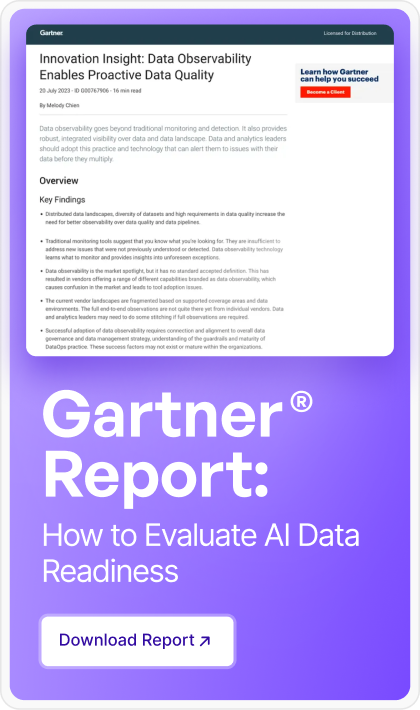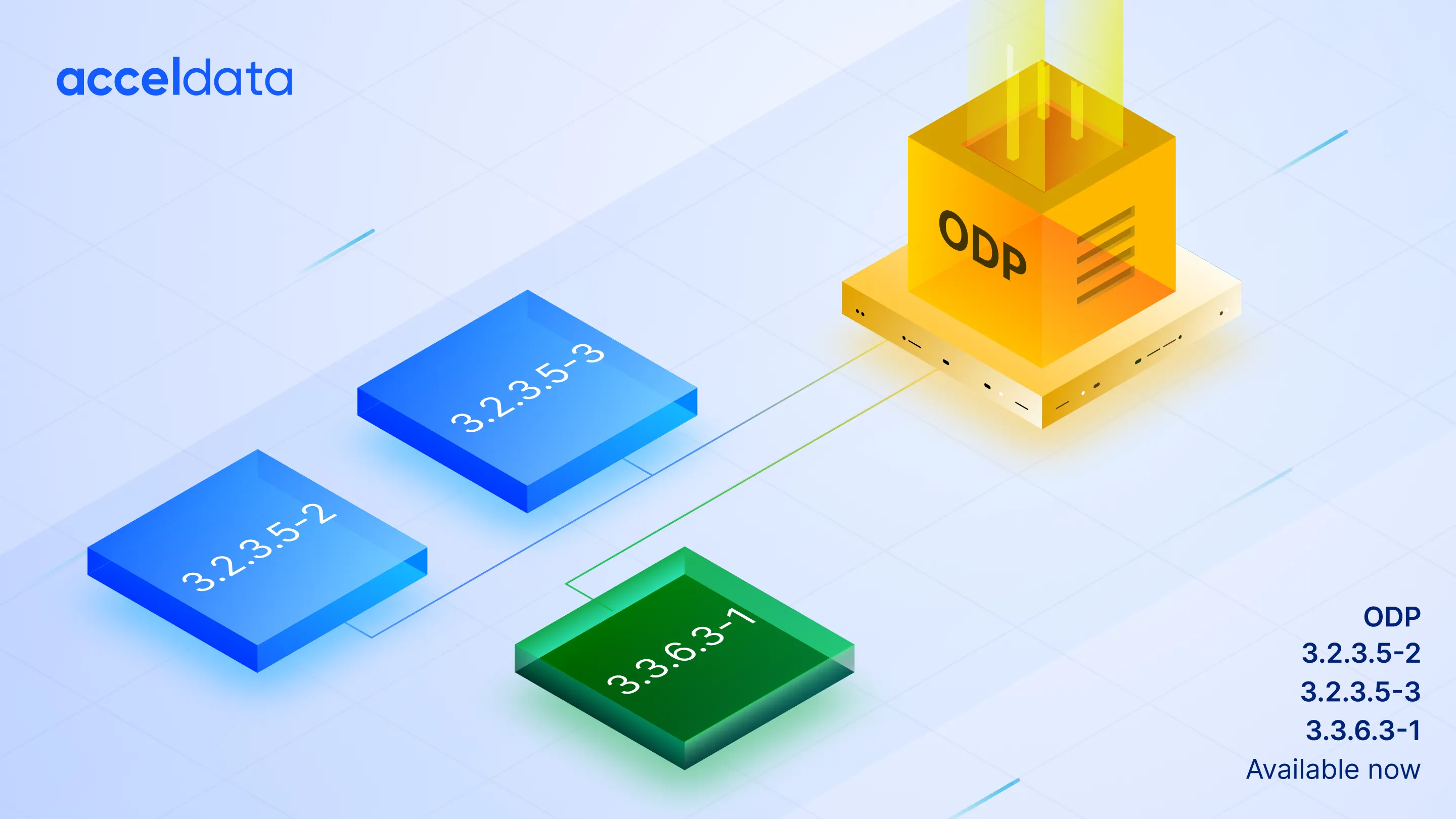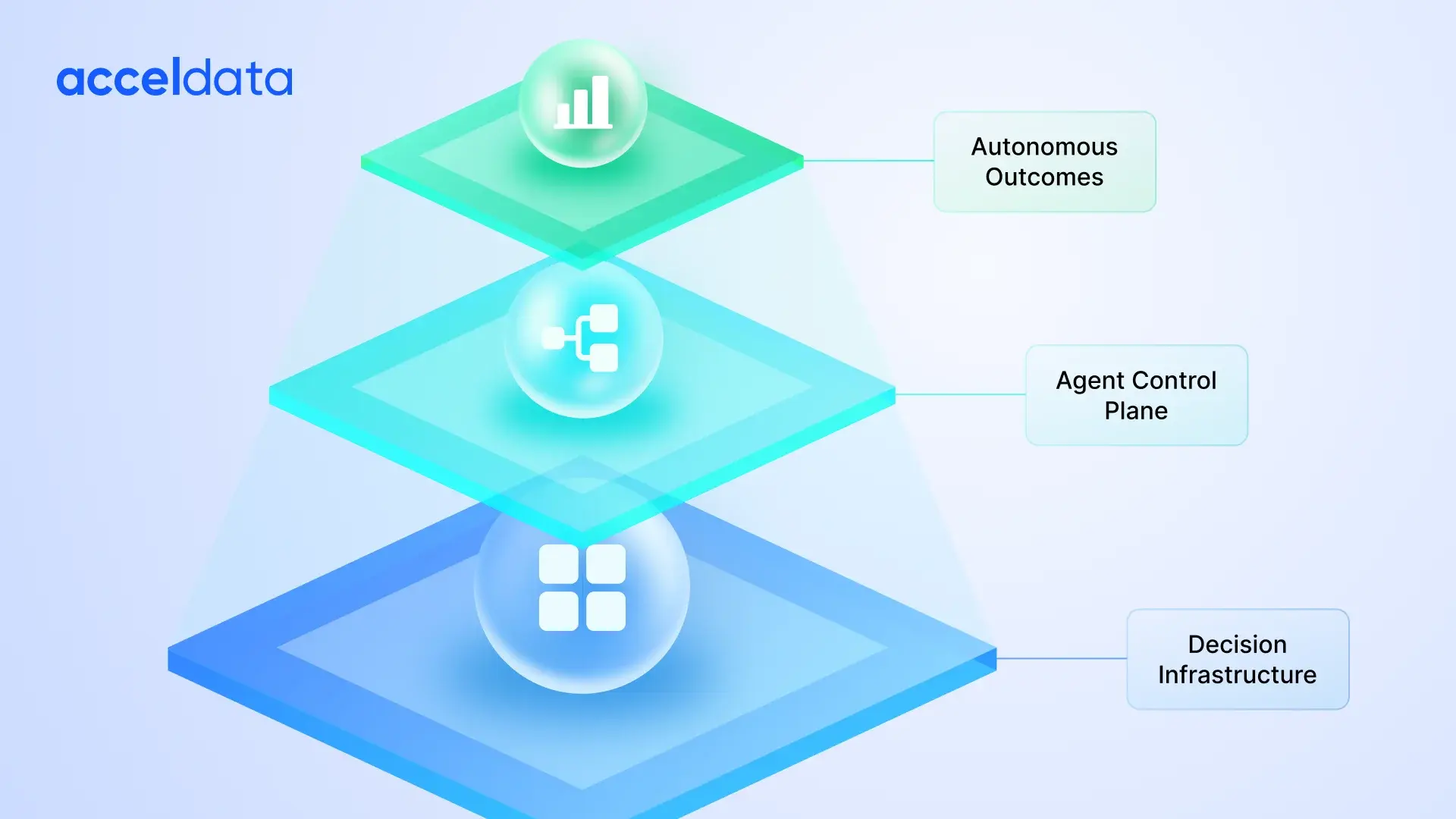As enterprises rapidly transition to the cloud, we’re on track to store a trillion gigabytes of data there by 2025. The cloud computing market is projected to reach $947.3 billion by 2026, highlighting the growing reliance on this technology. While the cloud offers benefits like centralized security, quick deployment, and scalability, poor data quality can undermine these advantages — crippling decision-making, hindering operations, and degrading customer relations.
A perfect example is Hawaiian Airlines, which, thanks to data errors, mistakenly priced a ticket at $674,000 (the number was actually the number of award miles on the traveler's account). According to the analyst firm Gartner, mistakes like these cost organizations an average of $12.9 million annually.
Cloud data governance plays a critical role in maintaining data quality in the cloud. Suffice it to say that leveraging the full potential of cloud data requires high data quality. Here are the top four best practices to ensure it:
- Monitoring data quality with automated tools
- Data encryption
- Access-control policies
- Third-party risk assessment
Data quality monitoring using automated tools
Data quality monitoring is essential in cloud environments, where data flows rapidly and errors can compound quickly. Reliable tools offer real-time assessments to catch and resolve data quality issues before they impact business operations. Implementing best practices in cloud data management including robust data quality monitoring tools, helps ensure cloud data integrity. Acceldata offers powerful, automated capabilities that detect errors, such as duplicates, missing values, and incorrect formats, reducing manual intervention and improving overall efficiency.
While Acceldata provides a complete solution, other tools like Talend Data Quality, Informatica Data Quality, and Bigeye are also viable options. These tools offer specialized features tailored to specific needs. Regular data profiling with these tools helps businesses understand data patterns, set quality benchmarks, and ensure data integrity.
Typical use case: A logistics company using data-quality monitoring tools can instantly identify and rectify data issues, such as duplicate entries or missing information, ensuring real-time inventory-management accuracy. This proactive approach prevents problems such as overstocking or stock-outs, which could otherwise lead to missed sales opportunities or costly delays. Without effective monitoring tools, the company may risk operational disruptions and financial losses, undermining its competitive edge and customer satisfaction.
Data encryption in the cloud
Data encryption is essential for safeguarding information in the cloud. Encrypting data both at rest (stored on cloud servers) and in transit (while moving between sources and the cloud) protects it from unauthorized access and interception. It is also required to comply with certain regulations, such as HIPAA. Strong encryption protocols, such as AES-256, ensure robust security, while effective key management practices — such as utilizing dedicated key management services (KMS) from cloud providers — help maintain control over your encryption keys.
Typical use case: A financial services firm implements encryption to protect sensitive customer data stored in the cloud and during transmission. By deploying AES-256 encryption and leveraging cloud-based key management services, the firm ensures that its data is secured against potential breaches. If the firm neglects these encryption practices, it risks exposing confidential financial information, leading to substantial financial losses, legal penalties, and erosion of customer trust.
Access-control policies
Effective access control is crucial for protecting data in the cloud. Assigning permissions based on user roles ensures that individuals can only access the data necessary for their job functions. Implementing multi-factor authentication (MFA) enhances security by requiring multiple forms of verification before granting access to sensitive information. Regular audits of access controls help maintain up-to-date permissions and ensure alignment with organizational policies. Cloud providers can assist with periodic audits to bolster these efforts.
Typical use case: An e-commerce company enforces role-based access control (RBAC) and MFA to protect customer data stored in the cloud. By regularly auditing access permissions and using cloud provider tools, the company ensures that only authorized personnel can access sensitive customer information. If the company fails to implement these controls, it risks unauthorized access to customer data, potentially leading to data breaches, financial penalties, and reputational damage.
Third-party risk assessment
Assessing third-party risks is crucial for maintaining data security in the cloud. This may include evaluating the security practices, data handling procedures, and compliance certifications of cloud vendors to ensure they meet your standards. Include service-level agreements that outline data quality and security expectations, along with penalties for non-compliance. Regularly review and assess third-party performance to confirm they continue to meet your data quality requirements.
Typical use case: A financial services firm evaluates its cloud vendors' security measures and data-handling practices before agreeing to partner with them. They include a strict clause in their contracts, such as: "The vendor must ensure 99.9% data accuracy and implement robust encryption standards, including AES-256, for all data at rest and in transit. Failure to meet these standards will result in a penalty of $500,000 for each breach incident." By conducting regular performance reviews, the firm ensures that its data remains secure and compliant with industry standards. Without such assessments, the firm could face significant risks, including data breaches, legal issues, and damaging customer trust.
Takeaways
Maintaining high data quality is essential for leveraging the cloud's full potential. By adhering to best practices like real-time data monitoring, strong data encryption, rigorous access-control policies, and thorough third-party risk assessments, you can significantly enhance data quality and mitigate risks.
It is critical to choose cloud vendors and platforms that share your standards to ensure that your data is handled with care and precision. To achieve top-notch data reliability and quality, explore Acceldata’s advanced solutions, which provide comprehensive tools to manage and enhance cloud data quality.
Acceldata strengthens data governance by improving data quality through enhanced data observability. This ensures efficient, cost-effective operations while maintaining compliance with industry regulations. By providing real-time insights, Acceldata helps businesses make informed decisions, optimize resource allocation, and reduce waste. With better visibility into data quality, organizations can improve compliance management and operational efficiency, ultimately driving significant cost savings and maximizing the value of their cloud operations.
Ready to see how Acceldata can transform your data management strategy and ensure reliable data quality? Schedule a demo today.
Summary
As businesses move to cloud computing, maintaining data quality is crucial to prevent issues like errors and security breaches. Best practices for ensuring data quality include using automated tools for real-time monitoring, encrypting data to protect it from unauthorized access, setting role-based access controls, and regularly assessing third-party vendors for compliance and security. These steps help organizations safeguard their data, improve decision-making, and minimize risks.








.png)








.webp)
.webp)


